- What Happens After You’re Pulled Over for a DWI in New Jersey?
- How to Defend DWI Charges in New Jersey
- FAQ: Misconceptions People Have When Arrested for a DWI in New Jersey
- What Are the Consequences of a DWI Charge in New Jersey?
- Q&A: Drug-Related DWIs
Straightforward and Effective Legal Counsel
If you have been charged with drinking and driving or driving under the influence, you need an aggressive lawyer to protect your constitutional rights. Just because you blew over the legal limit doesn’t mean you should simply plead guilty, especially if it’s your first offense. An experienced New Jersey DWI/DUI defense lawyer can minimize the consequences and, under the right circumstances, may even be able to get charges dropped, provided you meet certain terms set by the law.
The criminal defense lawyer at the Law Office of Matthew V. Portella, LLC, has over 20 years of experience handling drunk driving matters as well as all types of other criminal matters. We know the stress and anxiety you can feel when you have been arrested. Our primary objective is to protect your rights, but we are also committed to putting you at ease, making certain you understand the law and legal process, as well as your options so that you can make good decisions about how you want to proceed.
We’ll never leave you hanging—you’ll always be informed of any developments in your case. And we’ll always communicate with you in plain English.
Our DWI/DUI Defense Practice
We work with clients at all stages of a DWI/DUI case. Even if you have already been convicted of drinking and driving, we can help you with an application for post-conviction relief to possibly reverse the conviction. We defend people charged anywhere in all of New Jersey, including on the main highways, from the Atlantic City Expressway and the Garden State Parkway to 295, Route 42, Route 55 and the New Jersey Turnpike.
Bellmawr, Cinnaminson, Collingswood, Cherry Hill, Evesham, Haddonfield
When you hire a New Jersey DWI/DUI defense lawyer to defend you against a drunk driving charge,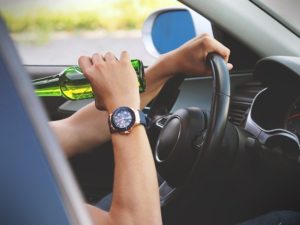 we will conduct a full investigation of the facts and circumstances of your arrest, including whether there was probable cause to make the traffic stop. We will review police reports to verify that field sobriety and alcohol tests, including the Alcotest machine and BAC were correctly administered, and that you were properly advised of your rights when taken into custody.
we will conduct a full investigation of the facts and circumstances of your arrest, including whether there was probable cause to make the traffic stop. We will review police reports to verify that field sobriety and alcohol tests, including the Alcotest machine and BAC were correctly administered, and that you were properly advised of your rights when taken into custody.
We also defend individuals facing prosecution for other alcohol-related crimes involving motor vehicles, such as vehicular manslaughter or death by auto, assault by auto, and aggravated manslaughter.
Getting an Acquittal in a DWI/DUI Case in New Jersey
A drunk driving arrest is not the same thing as a drunk driving conviction. All defendants are presumed to be innocent until proven to be guilty beyond a reasonable doubt. You have the right to raise a strong defense against DWI/DUI charges. Our New Jersey intoxicated driving defense lawyer is a zealous, experienced advocate for clients. You may be able to get DWI/DUI dismissed or you may be able to get acquitted of a DWI charge on any of the following grounds:
● Illegal Stop: Your rights matter. Police officers cannot stop a person without probable cause. If the stop that led to a DWI charge was unlawful, the evidence obtained in that stop may not be admissible in court. This could lead to a DWI dismissal or DWI acquittal.
● Testing Flaws: Many drunk driving charges are brought based on chemical test results—either breathalyzer tests or blood tests. These tests are not perfect. A DWI charge may be dropped or a defendant may be acquitted if a chemical test is unreliable.
● Unreliable of Field Sobriety Tests: Were you arrested for a DWI based on a failed field sobriety test? There are serious questions about the reliability of non-chemical field sobriety tests. You can challenge the results of a “failed” field sobriety test.
Ultimately, there are different ways to beat a DWI/DUI charge in New Jersey including : 1) You can establish that you were not intoxicated and therefore the State cannot prove the charge against you beyond a reasonable doubt, 2) You establish that you were not actually in physical control of the vehicle, or 3) You can get so much of the prosecution’s evidence thrown out that they cannot support the charges. New Jersey DWI/DUI defense lawyer Matthew V. Portella will carefully review the charges against you and develop the best strategy to protect your rights and secure your future.
Can You Be Charged with DWI on Stimulants?
According to the Bureau of Transportation Statistics (BTS), an average of 1.4 million people are arrested and charged with intoxicated driving each year nationwide. In New Jersey, you could be charged with a DWI if you operate a motor vehicle while impaired by alcohol or drugs. Indeed, driving under the influence of drugs is also prosecuted as drunk driving.
This raises an important question: Can you be arrested and convicted for intoxicated driving for being on drugs or stimulants in New Jersey? The short answer is yes — a number of different stimulants could result in a DWI charge. In this article, our New Jersey drunk driving defense attorney explains the most important things to know about being charged with DWI while on stimulants.
What are Stimulants?
As defined by the United States Drug Enforcement Agency (DEA), a stimulant is a substance that raises the body’s physiological activity or nervous activity. It is a broad term that covers a wide range of different types of drugs. Technically, caffeine is a stimulant, but a driver in N.J. will not be charged with a DWI due to caffeine consumption. There are also a number of different controlled substances that are classified as stimulants, including:
- Amphetamines
- Methamphetamines; and
- Cocaine.
New Jersey DWI Statute
In New Jersey, all drivers have a responsibility to ensure that they are in the proper physical and mental condition to safely operate a motor vehicle. Among other things, state law requires motorists to avoid drunk driving and drugged driving. Indeed, under N.J.S.A. 39:4-50(a), it is unlawful to drive “while under the influence of intoxicating liquor, narcotic, or habit-producing drug.”
Stimulants can qualify as a “narcotic” or a “habit-producing drug” under the New Jersey DWI statute. In other words, you can be arrested and charged with intoxicated driving for being under the influence of a stimulant. The New Jersey statute defines drugged driving as operating a motor vehicle while “under the influence” of a narcotic, hallucinogenic, or another type of habit-producing drug.
Stimulant DWI Cases are Complicated — Professional Representation is Crucial
In New Jersey, a driver can be arrested and charged with a DWI if their blood-alcohol concentration (BAC) level is 0.08% or higher. However, with drugged driving — including cases involving the alleged uses of stimulants such as amphetamines or cocaine — chemical testing is suspect.
There are serious questions about the accuracy of tests that law enforcement use to determine if a driver was under the influence of a drug, such as tests analyzing blood or urine, as and the accuracy of officer observations. If you were arrested for allegedly driving while under the influence of a stimulant, narcotic, or habit-producing drug, an experienced New Jersey DWI defense lawyer can help.
Call Our New Jersey DWI Defense Lawyer for Immediate Help
At the Law Office of Matthew V. Portella, LLC, our New Jersey DWI defense lawyer, Matthew V. Portella, is an aggressive advocate for clients. If you or your loved one was arrested for an alleged DWI while on stimulants, he can help. Contact our law firm today for a strictly confidential consultation. From our office in Haddonfield, Mr. Portella defends drivers facing DWI charges throughout New Jersey, including those in Atlantic, Burlington, Camden, Hunterdon, Ocean, Monmouth, Middlesex, Somerset, Mercer, Gloucester, Salem, Cumberland, Cape May, Warren, Sussex, Passaic, Morris, Union, Essex, Hudson, and Berger Counties.
FAQ: How to Choose an Attorney to Handle Your DWI Case in New Jersey
Why do I need to hire a New Jersey DWI/DUI defense lawyer experienced in handling DWI cases and not just a general attorney or a public defender? What are some of the complicated situations that can arise in these DWI cases?
If you are charged with DWI, you should hire a New Jersey DWI/DUI defense lawyer who is experienced in DWI defense. The reason for that is that the attorney can go through all the evidence to make sure that:
- Your constitutional rights are protected.
- The prosecutor has provided all the evidence that he or she is required to provide.
- To make sure that the proper procedures are followed in your case so that you get the best defense possible.
Picking an experienced DWI attorney will also help quell your fears about the criminal justice system. That attorney will let you know as the case progresses what is happening so that you’re kept in the loop and it keeps your stress down. The bottom line is: if you want to beat a case, the best thing to do is to hire an experienced New Jersey DWI/DUI defense lawyer.
What warning signs should someone look for when hiring a DWI attorney (because there are a lot out there)?
That’s a tough one. I would say that the smartest thing you can do is ask your attorney what his experience is defending people on DWIs, how many years he has been practicing this type of law, what types of DWI cases he has handled, and what kind of cases he has experienced where he was able to get a favorable result for a client. Those conversations will help you as a client determine whether or not that attorney is right for you and whether or not that attorney knows what he is talking about. The best preparation is to have questions written down or at least prepared before you go in to meet with the attorney about that attorney’s experience.
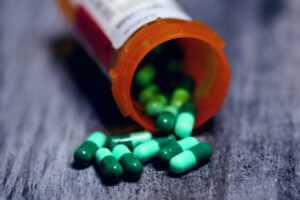 What sets your firm apart in handling DWI cases in New Jersey?
What sets your firm apart in handling DWI cases in New Jersey?
We are meticulous about our work. We are a client-based firm and we make sure our clients are aware of what is happening in their case from beginning to end so that they are kept in the loop. We are results-driven and make sure our clients are satisfied. At the end of the case, we want to make sure that our clients walk away from the case happy, knowing that they got the best defense and the best representation possible.
Another thing is that we are very approachable and accessible. We’ll never leave you in the dark. One of the things I don’t like about some attorneys I hear about from clients is that they don’t call them back or don’t respond to their emails or texts. Here, we make sure that you’re always kept in the loop.
We Move the Cases Along
Along those lines, I’ve had cases where courts have forgotten to list a case and my client has called me and said, “I haven’t gotten the court notice.” In one such case, I told my client, “Let’s make an agreement. Let’s talk every month, and every month it goes by that the case isn’t listed, it’s another month that your constitutional right to have a speedy trial has been violated.”
The case went on and on for about 19 months and the court finally listed the case. When we went in, I asked the judge to dismiss it for a violation of the constitutional right to a speedy trial, and the case was dismissed.
New Jersey tries to move cases along fast. There is a guideline that the courts want to resolve the case within 60 days from the date of the stop. Quite honestly, though, that doesn’t always happen, especially when prosecutors don’t give up all the evidence.
Is there anything else people should keep in mind regarding DWIs in New Jersey?
If you’re caught driving while intoxicated in a school zone, the fines or penalties are generally doubled.
Does it matter if it’s during school hours or not?
It doesn’t matter. The statute doesn’t call for that.
What Happens After You’re Pulled Over for a DWI in New Jersey?
What are field sobriety tests and when are those administered?
There are three standardized field sobriety tests or SFSTs, and they were created and approved by the National Highway Traffic Safety Administration (NHTSA). Those are the only ones that could be used to convict somebody of being under the influence. They can also be used to allow the police officer to formulate probable cause to arrest somebody for being under the influence and operating a car, or DWI.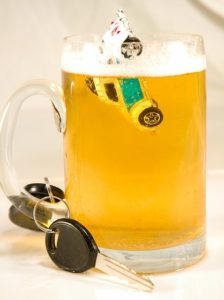
One of them is called Horizontal Gaze Nystagmus test (HGN), that’s where the officer looks for an involuntary muscle contraction in the eye that causes the eyeball to shake. That test has never been proven to be scientifically reliable as a means of determining if someone is under the influence of alcohol. The results of that test, therefore, are not admissible in court.
The second standardized field sobriety test is called a Walk & Turn test or a W&T. That’s where the person suspected of DWI is asked to walk 9 steps forward, turn around, and come back 9 steps while counting their steps out loud, touching heel to toe, and keeping their hands at their sides. The third test is called the One Leg Stand or OLS test. That’s where the person is told to raise their foot 6 inches off the ground, keep it parallel to the ground, look at their foot, keep their arms at their side, and count out loud until the officer tells them to stop. Usually, it goes up to about 30.
These Tests Can Be Used To Convict You
Those are the standardized field sobriety tests that can be used by a judge to possibly convict you of drunk driving. Cops also give other tests like the alphabet, touch your nose, and count backward from a certain number to a certain number. All of those tests have no scientific reliability at all as to whether or not you’re under the influence, though. There is no correlation there.
Are they used as a way to determine whether or not to place you under arrest then?
They can be used in formulating a guess as to what’s called probable cause to place you under arrest. Usually, the officer gets you to say the alphabet so that he can hear whether your speech is slurred and whether your breath has the smell of alcohol in it.
In New Jersey, is the portable Breathalyzer used on the side of the road?
Yes. They are called PBTs (Portable Breathalyzer Tests). Some towns use them; most of them only show a positive or negative indication of alcohol. They are not scientifically reliable, and the results are not allowed to be admitted as evidence in court.
Do most people confuse that test with the evidential Breathalyzer at the station?
Some do. Some think that that’s the actual test.
Once you’ve been placed under arrest and you’re asked to take the evidential Breathalyzer, what happens if you refuse to take it?
In New Jersey, the machine that we use is called an Alcotest. The model that we use now is the 7110 MK III-C. If you refuse, you will be charged with refusing to give a breath sample and with drunk driving. The statute for refusing gives the judge what’s called a “permissible inference” that you refused because you were drunk, so you will be charged with both offenses and they carry almost the same penalties.
 FAQ: How to Defend DWI Charges in New Jersey
FAQ: How to Defend DWI Charges in New Jersey
How often are you able to get charges or sentences reduced in DWI cases?
As often as I can. I am always looking to find an aspect of the case — whether it’s a failure of the prosecutor to provide discovery, or whether there is a constitutional or scientific issue that benefits the defendant — that I can use to my client’s benefit. Sometimes, it’s like looking for a needle in a haystack, but I’ll look hard for it.
How often do you have to employ or bring in any sort of specialist related to the science of these cases? Some of them can get pretty technical.
I believe it is a good idea to use an expert if the police reports and the evidence don’t immediately show a viable defense. In those cases, it would be necessary for an expert to come in and give a specialized opinion on certain aspects of the case, such as whether the gas chromatograph used to test the blood or urine was calibrated or operated properly, or whether the digital memory of the Alcotest machine reveals any defects in the machine that would cause the readings to be unreliable. It’s a good idea if the evidence at the very beginning doesn’t show a constitutional flaw or a flaw in the proof.
Do most of these cases end up being handled out of court with a plea agreement or something to that effect, or do you often take cases to trial?
There is a strict prohibition against plea-bargaining drunk driving cases in New Jersey. It is not permitted; it is not allowed. There is a guideline from the New Jersey attorney general’s office that does not allow it.
As a defense attorney, therefore, it is my job to find a defect or a flaw in the case, either in the evidence or in the procedure, to help my clients. Most of them are resolved before going to trial, though, and there are statistics that show that most cases are able to be resolved.
Are there any alternative punishments like diversion programs for first-time DWI offenders?
New Jersey has no alternative programs for any DWI or refusal charges. Other states do, but New Jersey does not, unfortunately.
FAQ: How Do You Get Your Driver’s License Reinstated After a DWI in New Jersey?
Was your license suspended or revoked due to a drunk driving charge in New Jersey? If so, you need to avoid operating a motor vehicle. Driving with a suspended or revoked license is a serious violation in New Jersey. Not only could it result in a longer suspension/revocation, but it could also subject you to jail time.
Beyond that, it is important to understand that your license will not be automatically reinstated at the end of your suspension period. To get your license reinstated in New Jersey, you need to take proactive measures. At the end of the suspension period, you should go to the New Jersey Motor Vehicle Commission (MVC) – formerly known as the Department of Motor Vehicles (DMV), apply for reinstatement, and pay the license restoration fee.
FAQ: Misconceptions People Have When Arrested for a DWI in New Jersey
One top misconception people have is that they can’t be convicted of DWI if their blood alcohol concentration is lower than 0.08, or that they can’t be convicted if they were driving under the influence of one of their prescribed medications.
FAQ: What are the Other Reasons Your License Can Be Suspended in New Jersey?
A drunk driving or drugged driving conviction will lead to a driver’s license suspension in New Jersey. The duration of the suspension will depend on some different factors, including your prior history of DWI/DUI offenses or lack thereof. Some other reasons that your driver’s license could be suspended in New Jersey include:
● Refusal to take a breath test after a valid DWI/DUI stop;
● Too many traffic offenses on your driving history ;
● Failure to provide proof of the minimum mandatory insurance coverage;
● Failure to pay certain fines or court fees.
● Abandonment of a vehicle on a public highway; and
● Certain other criminal convictions.
That’s a big issue, because some people may say, “Look, I’m prescribed Valium,” or, “I’ve been prescribed Percocet,” and they say, “The doctors prescribed it to me. How can I be driving under the influence?” The statute is clear. If you drive under the influence of a narcotic, hallucinogenic, or habit- producing drug, you are guilty of DWI. Taking your medicine and driving could get you convicted, or at least charged.
producing drug, you are guilty of DWI. Taking your medicine and driving could get you convicted, or at least charged.
Do you ever hear people say, “I was not read my Miranda Rights during the questioning outside the car, so I must just get this thrown out”? Is that a misunderstanding that people might have?
Many people think it’s “no harm, no foul.” Miranda Rights will only apply if you are in custody and are being interrogated and then give an incriminating answer. For the most part, when you are arrested, the police officers may read you your rights, but if you have not given a statement where you’re incriminating yourself or saying something that tends to show that you’re guilty, not being read your Miranda Rights is not going to help you.
What have you seen in terms of people’s behavior and their reaction to being arrested or prosecuted for a DWI, especially someone who’s maybe never had any sort of contact with the law?
People’s emotions or reactions run the gamut from being completely calm and cool about it to having an emotional breakdown and crying. Actually, sometimes crying can help, because if you cry and the tears go into your mouth, it may produce an unreliable breath sample because the tears arguably contain alcohol.
Is there a particular kind of situation that people seem to find themselves in, such as, “I only had a couple of beers. It was no big deal. I’m just surprised I’m in this situation”? Or does it go more like, “Hey, I knew I went out and got blasted”?
Some people know that they shouldn’t have been behind the wheel; others may have had a glass of wine or two and feel fine but their blood alcohol concentration is still above the legal limit. New Jersey isn’t a subjective statute test, meaning if you feel fine, then you’re okay to drive. You may feel fine, but if your blood alcohol concentration is above the legal limit, you could be found guilty.
How public is a DWI arrest in New Jersey?
It’s a 100 percent public record. For the most part, though, if somebody wanted to find out if you were arrested, they would have to go to the town where it happened and check the police records or make what’s called an Open Public Records Act (OPRA) request. Generally speaking, these charges don’t hit the newspaper, but they can. There are police blotters, police Facebook pages, and arrests that are reported in the local newspapers. It is a matter of public record.
If there is an accident involved, would that make it more newsworthy?
It depends on how serious the accident was. If it was just a minor one, then probably not, but if it was an accident with a fatality, it could be more newsworthy. The drunk driving charge would turn into a felony in case of fatality.
What are some common mistakes you see people make once they’ve been arrested for a DWI that can potentially hurt their case?
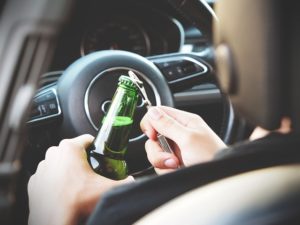 Being aggressive towards the officer and making comments that incriminate themselves about how much they had to drink. That’s about it.
Being aggressive towards the officer and making comments that incriminate themselves about how much they had to drink. That’s about it.
What should you tell police officers, if anything, if they ask, “Have you had anything to drink?” Should you be honest? What would you recommend?
That’s a catch-22. My general advice to people is to remain silent but be cooperative and admit nothing. The problem, though, as I have seen in my experience, is if you drank and there is an odor of alcohol on your breath and then the officer asks, “Have you been drinking,” and you say no, the officer may call you out and say, “I don’t believe you,” or, “I think you’re lying because I can smell the alcohol.” That would naturally be a problem.
Many people charged with DWI/DUI think they should just plead guilty because they did it. Why do they need an attorney and why is it a bad idea to just throw yourself at the mercy of the court?
It’s not a good idea to not have an attorney. The best thing that a New Jersey DWI/DUI defense lawyer can do is review all the police reports, all the paperwork concerning the machine on which you were tested, and see whether or not there is a defense to your case. That starts from the moment that the police officer pulls you over until he or she finishes processing you.
There are constitutional issues, for example, regarding whether there was probable cause to pull you over; there are issues concerning the machine and whether it was in proper working order or whether the officer operated it properly; and there are things about you physically, that could cause them not to properly perform the standardized field sobriety tests. All of these things can help defend somebody who is charged with a DWI.
FAQ: What Are the Consequences of a DWI Charge in New Jersey?
Do you lose your license right away if you’re charged with a DWI in New Jersey?
No. You will only lose your license if you’re convicted. From the time that you’re charged until the case is resolved, your driving privileges remain in good standing unless there is another reason that leads to their suspension.
Are DWIs bondable offenses? When are you going to be looking at getting out of jail after you’ve been arrested?
If you’re only charged with a DWI or you are refusing to give a breath sample, you will not be required to post bail because they are only traffic offenses. These are not crimes in New Jersey so you won’t have to post bail. The only time for the most part that you’ll have to post bail is if you’re charged with drunk driving as well as a criminal offense related to it.
Once you’re out of jail, when will you be going to court for your first appearance? How many times do you have to appear in court if you have an experienced attorney?
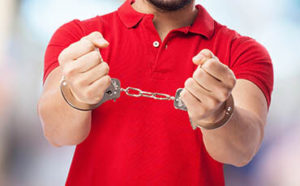 Usually, the court date for your first appearance comes very quickly. In some towns, it’s the next day; in other towns, it’s within a week; in still other towns, it’s within 30 days. It depends on the court.
Usually, the court date for your first appearance comes very quickly. In some towns, it’s the next day; in other towns, it’s within a week; in still other towns, it’s within 30 days. It depends on the court.
The first appearance is just for you to go in front of a judge, to let the judge know whether you’re hiring an attorney, and for the judge to advise you what you’re charged with and what the penalties are.
Generally speaking, the courts try to resolve drunk driving cases within 60 days of the date of the stop. I would be prepared, if you have an experienced attorney who knows how to handle the case both from an evidentiary standpoint—in other words, whether or not there is enough proof against you to convict you of drunk driving—as well as a procedural standpoint—which means making sure that the prosecutor in that town has provided all of the discovery to which you’re entitled so that you can make an intelligent decision as to whether or not to plead guilty—for about two or three court appearances. That depends on whether or not the prosecutor is doing his or her job in getting all the evidence to your attorney.
If you are convicted of DWI in New Jersey, what are the standard minimum penalties?
That’s a big one. For the first offense for an alcohol-related DWI where your blood alcohol concentration is between 0.08 and about 0.09, the penalties are generally $250-400 in fines, approximately $30 in court fees, and approximately $3,500 in surcharges and other costs from the New Jersey Motor Vehicle Commission. You’ll have to attend an intoxicated driver resource center for 12-48 hours for an alcohol evaluation. You could go to jail for up to 30 days, and you will be required to install an ignition interlock device (IID) on the car that you own or principally operate for 3 months.
If it’s a first offense and you’re at a 0.10-.14 blood alcohol concentration or higher, you face the same consequences with a few exceptions: the fines could be up to $500, your license will be suspended until you have an IID installed, and that IID will be required to be in your car for 9-15 months.
If your blood alcohol concentration is 0.15 percent or higher, all of the above still apply and your license will be suspended for a period of 4-6 months. You will be required to put an ignition interlock device on the car that you own or principally operate for the term of your suspension and then for 9-15 additional months after you get the license back. The first offense with narcotics or habit-producing drugs is the same as if your readings were 0.10 or higher, and you also have to have the ignition interlock device.
After the First Offense, it Gets Serious
The second offense within a 10-year span has more serious consequences. For the second conviction, the fines are up to $1000. There is a 1 to 2-year mandatory loss of license, 48 hours to 90 days in jail, 30 days of community service, mandatory attendance in an intoxicated driver resource center for 48 hours, and the requirement of the ignition interlock device for 2 to 4 years after the driver’s license is restored.
The third and subsequent offenses hold severe consequences
The third and subsequent drunk driving offense involves a $1,000 fine, approximately $5000 in additional fees and surcharges, the intoxicated driver resource center, an 8-year loss of license, 180 days of mandatory jail time, as well as the ignition interlock device for up to 4 years following license restoration.
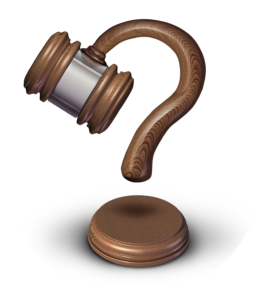 Does New Jersey offer any type of hardship or occupational license?
Does New Jersey offer any type of hardship or occupational license?
Unfortunately, no. In New Jersey, if your driving privileges are suspended for drunk driving or any other reason, you are not allowed to drive. That means no work licenses, no daytime licenses, and no hardship licenses. If you get caught driving on a suspended license after a drunk driving conviction, you can go to jail for a minimum of 10 days up to 90 days.
In certain circumstances, that becomes a fourth-degree felony where, if you’re convicted, you have to serve a mandatory 180 days in a jail or state prison.
What are some other factors besides driving without a license that might enhance or aggravate a DWI charge in New Jersey?
There are a lot of factors, such as whether or not you’re polite with the officer, your prior driving history, whether you placed other drivers at risk when you were driving (in other words, on a heavily populated or traffic leading road), whether there was an accident, whether somebody was injured, and whether you had a minor in your car.
If you have a minor in your car and you’re driving while intoxicated, it’s a disorderly person’s offense. If there are other aggravating factors, it could be a felony charge of endangering the welfare of a child.
If you’re involved in an accident and somebody is hurt, it becomes a felony aggravated assault. If somebody is killed, it becomes either a second-degree death by auto or vehicular homicide or a first degree aggravated manslaughter. For those felony charges, there are mandatory state prison sentences. In addition, the higher your blood alcohol concentration, the more aggravated the factors could be.
Is there a certain threshold that enhances the aggravated charge?
No. If you’re double the legal limit or higher, certain judges may impose a longer loss of license.
How does New Jersey handle DWIs with BACs below 0.08?
You could still be convicted of DWI if your blood alcohol concentration was below 0.08. If the alcohol or other narcotic or hallucinogenic or habit producing drug in your system substantially affects your ability to operate your motor vehicle, then you could still be convicted based on your performance of the standardized field sobriety tests, your overall demeanor, and so forth.
Q&A: Drug-Related DWIs
Your firm has handled some illegal and prescription drug-related DWIs. Are you seeing a lot more of those in recent years, and are those cases typically easier or harder to defend than alcohol-related DWIs?
I have not seen an increase over the years, but I have seen a steady amount. They’re a little bit more complicated than liquor cases because now you’re dealing with the police officers either obtaining a urine or a blood sample. There are certain constitutional issues that come into play then as to whether or not the officers were supposed to get a warrant to draw your blood before they try to get the blood.
the blood.
The cases are further complicated by the fact that blood and urine are tested on gas chromatographs. Now we have issues like the chain of custody to see if the blood that was tested was actually your blood and it wasn’t confused with somebody else’s blood in the laboratory, whether the chemist who tested it had the proper training, whether the laboratory had proper standard operating procedures to make sure that blood and urine samples are not contaminated, and so forth. There are many, many more issues in those cases.
In New Jersey, how is marijuana handled in terms of having metabolites in your system? Are there any laws right now on the books that address that?
In New Jersey, if you admit to smoking marijuana or if there is a metabolite of marijuana in your blood or urine, the police officer who arrested you is allowed to give an opinion as to whether or not he or she believed that you were under the influence of marijuana. It’s a different question with other drugs like cocaine, LSD, heroin, Percocet, and other pills as to whether or not the officer had proper training. In New Jersey, though, if an officer smells burnt marijuana and/or if you admit to smoking marijuana and it comes up in your blood or urine, you may be convicted of driving under the influence of marijuana.
For more information on drug-related DWI in New Jersey, a free initial consultation is your next best step. Get the information and legal answers you’re seeking by calling (856) 310-9800 today.
